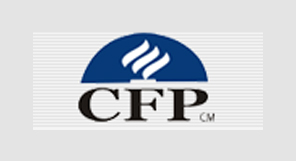A good citizen should always pay tax. But he should not end up paying unnecessary tax. A smart citizen is one who pays tax but also makes maximum use of provisions available in Tax Laws to minimize it.
Some common questions that come to mind:
- Am I making optimum use of my 80C and 80D tax benefits?
- What are the changes in tax laws that may affect my taxes, investments and savings.
- What is the effect of Long-term capital gains and short-term capital gains on my investments?
- Just the year-end Tax Saving or Strategic Tax Planning. What is more beneficial?
- Which is more beneficial for me - ELSS or PPF or both?
This can be achieved through scientific Tax planning.
Tax Planning involves measures within the current legislation dealing with the choice of time, location and activities, with creation and support of the most effective schemes and contractual relationships to increase the cash flows due to minimization of tax payments.
Through proper tax planning, you will not only lower amounts of tax payments with respect to basic taxes, but you'll also create a wealth stream for achieving long term goals.
Optimization of tax payments includes:
- Examination of the tax saving schemes available;
- Shortlisting the most suitable schemes for your benefit;
- Expert opinions on taxation problems;
Tax Planning Tips
An Indian Citizen can save tax under the following sections:
Section 80C of Income Tax Act 1961:
A maximum of Rs. 1,00,000 can be claimed as a deduction from your taxable income provided it is invested in any / all of the following:
- Premiums paid towards Life Insurance Policies
- Equity Linked Saving Schemes (ELSS) - ELSS are Mutual Fund schemes having a lock-in period of 3 years. Examples: SBI Magnum Tax Gain Scheme, HDFC Tax Saver, DSP BR Tax Saver, etc.
- Public Provident Fund (PPF)
- National Savings Certificate (NSC)
- Principal paid towards Housing Loan
Section 80D of Income Tax Act 1961:
Health insurance, popularly known as Mediclaim Policies, provides a deduction from Rs. 15000/- upto Rs. 35,000/- (Rs. 15,000/- for premium payments towards policies on self, spouse and children and (read as in addition to) Rs. 15,000.00 for premium payment towards non-senior citizen dependant parents (total Rs. 30000/-) or Rs. 20,000/- for premium payment towards senior citizen dependant parents(Total Rs. 35000/-)). This deduction is in addition to Rs. 1,00,000/- savings under IT deductions clause 80C. For consideration under a senior citizen category, the incumbent's age should be 65 years during any part of the current fiscal, eg. for the fiscal year 2010-2011, the incumbent should already be 65 as on March 31st, 2011). This deduction is also applicable to the cheques paid by proprietor firms. However, premiums paid by senior citizens for covering health of their children, dependent or otherwise, are not eligible for the deduction.
Section 80DD of Income Tax Act 1961:
The total deductible amount under this section is Rs. 40,000. Sec. 80DD stipulates that a resident individual or a member of HUF having a dependent relative who suffers from a permanent physical disability (including blindness) or mental retardation is entitled to a deduction of Rs. 20,000 in a year for medical treatment, training or rehabilitation. Payment to LIC's 'Jeevan Aadhar' and UTI's 'Special Plan for the Handicapped' specially designed for such persons is covered by Sec. 80DD. Deduction under section 80DD is statutory in nature and is allowed in full, irrespective of the actual expenditure incurred on medical treatment.
Section 24 of Income Tax Act 1961:
Under Section 24, the maximum amount of Rs 1,50,000 paid towards interest on your Housing Loan can be deducted from your income.

